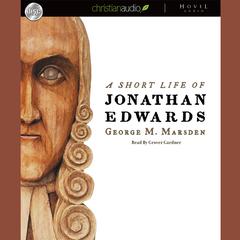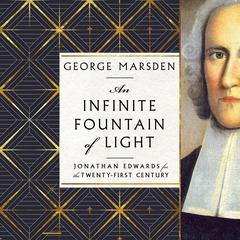 Play Audiobook Sample
Play Audiobook Sample
The Twilight of the American Enlightenment: The 1950s and the Crisis of Liberal Belief Audiobook
 Play Audiobook Sample
Play Audiobook Sample
Quick Stats About this Audiobook
Total Audiobook Chapters:
Longest Chapter Length:
Shortest Chapter Length:
Average Chapter Length:
Audiobooks by this Author:
Publisher Description
In the aftermath of World War II, the United States stood at a precipice. The forces of modernity unleashed by the war had led to astonishing advances in daily life, but technology and mass culture also threatened to erode the country's traditional moral character. As award-winning historian George M. Marsden explains in The Twilight of the American Enlightenment, postwar Americans looked to the country's secular liberal elites for guidance in this precarious time, but these intellectuals proved unable to articulate a coherent common cause by which America could chart its course. Their failure lost them the faith of their constituents, paving the way for a Christian revival that offered America a firm new moral vision—one rooted in the Protestant values of the founders.
A groundbreaking reappraisal of the country's spiritual reawakening, The Twilight of the American Enlightenment shows how America found new purpose at the dawn of the Cold War.
Download and start listening now!
“In this compact but powerful analysis ofAmerican life and thought in the years since the Second World War, George Marsdenshows why neither a triumphant secular liberalism nor a restored religiousconsensus can serve as a rallying point for national unity. Instead, he makes acase for a pluralism that treats the widest possible range of religious andnonreligious perspectives as equally deserving of protections and recognition,and rejects the privatization of religious speech and expression. The result isa book that is as much about dawning as about twilight, one that not onlyprovides a fresh and compelling view of postwar America, but offers a freshvision of the road ahead.”
— Wilfred M. McClay, University of Oklahoma
Quotes
-
“[Marsden’s] critique of the consensus culture of the 1950s is original and persuasive, and he is dead right to contend, with [Abraham] Kuyper and his intellectual heirs, that the idea of ‘neutrality’ is a sham. Mr. Marsden’s book won’t bring resolution to the conflicts over abortion or same-sex marriage, but his reflections should remind us that America is still ours: We don’t have to take it back.”
— Wall Street Journal -
“Under the surface of a seemingly placid era roiled a cauldron of doubts and discontent, according to this penetrating study of post-war intellectual ferment…Marsden’s erudite, sophisticated, but very accessible study reveals the suppressed spiritual hunger of a secular age.”
— Publishers Weekly -
“Marsden employs historical analysis to suggest why the United States is so badly split between secular-oriented intellectuals and religiously doctrinaire church leaders, a split that seems to have harmed the nations moral character, forged during World War II…An important discourse.”
— Kirkus Reviews -
“This remarkable book gives us an insightful narrative of how we have gotten to our present failure to manage increasingly diverse cultural realities in North America. Marsden charts the various efforts over several decades in the last century to sustain a pluralism on the basis of a cultural consensus—both ‘atheists for Niebuhr’ and the New Religious Right had their own versions of this project. In exposing the underlying reasons for their failure, Marsden points the way to a challenging but exciting journey toward a truly inclusive pluralism.”
— Richard J. Mouw, professor, Fuller Theological Seminary -
“George Marsden’s learned and accessible analysis of the intellectual culture of the 1950s is must reading for anyone trying to make sense of our current debates over religion in American public life.”
— John Fea, Messiah College, author of Was America Founded as a Christian Nation?
The Twilight of the American Enlightenment Listener Reviews
Be the first to write a review about this audiobook!
About George M. Marsden
George M. Marsden is the Francis A. McAnaney Professor of History Emeritus at the University of Notre Dame. He has written extensively on the interaction between Christianity and the American culture and has published numerous books, including Jonathan Edwards: A Life, which won the prestigious Bancroft Prize given for the best work of history. He lives in Grand Rapids, Michigan.
About William Hughes
William Hughes is an AudioFile Earphones Award–winning narrator. A professor of political science at Southern Oregon University in Ashland, Oregon, he received his doctorate in American politics from the University of California at Davis. He has done voice-over work for radio and film and is also an accomplished jazz guitarist.




























